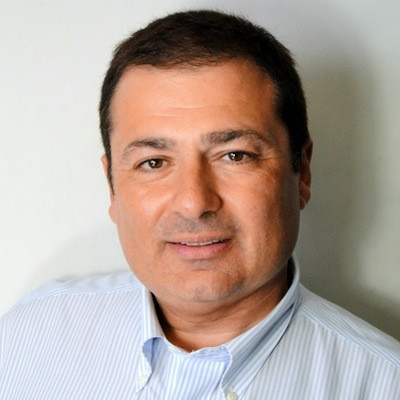Bishop: Transform Energy in Puerto Rico Balancing Infrastructure & Dispersion
Thursday, October 12, 2017
I’m shocked, shocked to see Elon Musk lining up for government money from the Puerto Rican relief effort. One has to respect his ploy for its industrial efficiency, if doubt his true contributions to an efficient energy economy anywhere. He intends to short circuit the stateside model of Solar City sales leeches who occupy the front aisle of big box stores trying to convince you to get your neighbors to pay your electric bill. Instead he just proposes to take over the grid on Vieques, a smaller island in Puerto Rico.
That’s cute, but is unclear who is supposed to pay for this, because if Musk is involved somebody else will pay. Much is made in USA Today’s coverage of Musk’s collaboration with Puerto Rican Governor Ricardo Rosello -- based on the notion that Tesla will reduce fuel requirements on Kauai, Hawaii by 50% within a couple years. Of course there is no talk that fossil generation will be eliminated in Kauai, its use will be reduced. And you can be sure that Musk’s cut doesn’t reflect the cost of keeping that generation at the ready. But in the remote Hawaiian setting he has demonstrated a competitive price point (albeit it is never clear how much subsidy is involved when discussing costs of renewable energy). For context, Hawaiian rates averaged 27.54¢/kwh last year, rates on Kauai were 32.78¢/kwh – our own much complained of recently increased RI standard offer rate is about 20¢/kwh and we are amongst the most expensive rates on the mainland.
Its sunny (and rainy) near the equator
GET THE LATEST BREAKING NEWS HERE -- SIGN UP FOR GOLOCAL FREE DAILY EBLASTBecause of its equatorial setting and the necessary expensive importation of any fossil fuel consumed it is possible in such isolated island circumstances that Tesla’s Solar and Storage can deliver the share of energy it can provide at prices competitive with fossil fuel. And so the argument goes, Puerto Rico is like Hawaii . . .
Daily energy supply profile from solar on Kauai before and after installation of storage by TESLA PHOTO: Kauai Island Utility Cooperative
But the demise of fossil fuel, even in these settings is much exaggerated. The Motley Fool advises: “Hawaii is proving that a 100% renewable energy future is not only possible, it's closer than you might think”. Makes me wonder if I would take any investment advice from them. They seem to have forgotten that they there is this thing called the rainy season. Lithium ion batteries have yet to prove they can competitively handle even the high morning and evening demand on sunny days nevermind several gray days in a row (see the Kauai Island Utility Cooperative graphs of typical day solar supply before and after the addition of lithium ion storage batteries by Tesla).
Transmission vs. Generation
But forgetting that there is no evidence that, even in the most suitable settings in the world, solar power would supplant fossil fuel for generation, there is another big problem in Musk’s pivot to Puerto Rico. On Puerto Rico, the problem in the wake of Hurricane Maria is transmission not generation. Puerto Rico does not need to replace its fuel supply or generation infrastructure which is fine, it needs to replace wires and poles. Indeed that is the very vision espoused by Musk and Rosello because Musk can’t collect in the future without a grid. They seem to assume they can push off this costly problem of wires onto the federal government with Rosello observing: “We need that immediate relief package from Congress . . . That should provide that runway for us to complete recovery efforts.” Taken in context with what he said to Musk you see that the two are essentially conspiring to get the feds to pay for Musk’s ‘help’ with Rosello suggesting: “if there is a silver lining, we can start re-conceptualizing how we want to produce energy here in Puerto Rico and distribute it and do it in a more reliable fashion”.
If Musk’s initiative made any sense, it could have been adopted before Maria, it has nothing to do with the hurricane. But still some presume that Musk will selflessly help Puerto Rico reduce its slavishly expensive devotion to fossil fuels. However, even with a patronage laden bankrupt central utility dependent on fossil fuel imports, the price for electricity in Puerto Rico was less than standard offer customers now pay in RI! Who is it who needs help here?
President Trump is the subject of ribald memes that flood the internet universe because he emphasizes the difficulty of providing recovery assistance because Puerto Rico is a distant island (of course Lin Manuel Miranda is a national hero for saying the same thing). Meanwhile, Governor Rosello gets positive press for seeking generation when what he is short on is transmission!
Look Ma, no grid
Now if Musk and Rosello were discussing getting rid of the grid altogether, that is truly outside the box thinking. But that isn’t what you get from Elon Musk. His game with lithium ion batteries is nothing new, it has been practically perfected by the cordless tools industry that now offers performance in parity with corded tools. Yeah his engineers know something about battery technology but he is hardly the only one. He doesn’t make this stuff up, he figures out how to get it subsidized.
Instead of the assumption that the feds will simply put back the long neglected grid, that was failing before Maria, “better than before”, and there will be enough slush floating around to keep the subsidy hound Musk in business over there it is fair to ask a zero sum question: Does Puerto Rico need a grid? Might some recovery spending be more effectively directed at getting rural areas, i.e., most of the island if not most of the population, off the grid? With truly dispersed electricity production such outlying areas would be unaffected by future hurricanes blowing down the grid, because it doesn’t flow over a grid.
In that context, some solar (modular enough to be broken down and put away so it doesn’t blow off the roof in the next hurricane) storage and back up at the house scale might be very appropriate and more cost efficient than any alternative spending on grid restoration. So this could be considered as an alternative to the expense of renewed wires to these homes and hamlets. But Rosello and Musk aren’t looking at such trade offs; they want both the grid and new generation and to have somebody else pay for it. Nice work if you can get it.
Electric cars lack flexibility of hybrids to contribute
You notice Musk isn’t proposing on sending any cars down. Ironically his focus on all electric cars, a business model meant to capitalize on the poorly informed generic hostility to fossil fuels, means his automobile efforts do not hold the promise for “degriding” that plug in hybrids like Toyota’s Prius do. Not only is a hybrid auto a high capacity mobile storage device with spare watts for residential power in a setting of short trips, it is also a back up generator -- and could be a better one with the least bit of upgrade to make its conceptual ability to generate easier to capitalize on in the real world.
Car companies proudly announcing that they are going to stop making internal combustion cars have completely overlooked the vast potential worldwide market based on this more integrated vision. We should view hybrid cars the way the communications market views cellphones: they don’t need wires. If you can’t charge ‘em you turn the engine on and you can run your house with ‘em. Yes you need to be able to pump gas, but if the gas station owner has a hybrid he is able to run his pumps!
TEPID is about Source Agnosticism
And for those who hate National Grid, imagine when this technology actually matures and you wouldn’t need a grid in Rhode Island. The ‘Grid’ has cleverly positioned itself on both sides of the fossil and renewable debate in heads-we-win, tails-you-loose competition with ratepayers. They make a killing regardless of whether they are selling fossil or renewable energy. Even with escalating energy costs caused by artificial constraints in conventional supply here in RI and vastly subsidized renewables, the lion’s share of your 20¢/kwh, more than a dime still goes to National Grid for ‘transmission’. Only 9¢ goes to the standard offer for the power itself.
We should be source agnostic and realize that advances in technology don’t demand vast investments in the grid, they demand ultimately getting rid of it. We should have nothing against the economically sensible, i.e. it pays for itself, use of renewables and they most especially make sense in sunny energy isolated locales.
Should recovery include drill rigs?
But Honda hybrids or Honda generators as dispersed backup and traditional diesel backup for industry and urban concentrations remind of the realities that even in the most ‘solar’ settings on the planet you aren’t going to generate even modest western living standards without fossil fuel. Much overlooked is that Puerto Rico is made out to be, like many islands, an energy-impoverished economy where it must all be imported. Ironically, the island might be energy poor but surrounded by petroleum reserves. Technical and institutional barriers appear to have prevented exploration and production around Puerto Rico since potential oil basins were first identified north of the island in seismic studies in the 1970s. Recent research drilling on the Caribbean Plate south of the island in the Muertos Belt within Puerto Rico’s exclusive economic zone identified shale that is potentially oil bearing, leading the USGS to publish low confidence unproven reserve estimates.
Both this publication and those considering the basins on the north side of the island where even less is know of the geological strata, e.g. this from 1995, explain that reliable estimates cannot be made without exploratory drilling or other more precise geological characterizations. If we are asking questions about energy in Puerto Rico it seems self evident to wonder, despite water depths that would have been daunting in the 1970s before directional drilling and self positioning semi-submersible rigs, why no interest in potential energy reserves 15 miles from its own shores is expressed in Puerto Rico.
If there is developable resource, much would be natural gas, in relatively short supply on the island. But on the south coast there is an LNG importation facility and with the increased supply, low costs and liquefaction facilities on the mainland this existing LNG infrastructure is underutilized. It supplies a single power plant that must maintain relatively long transmission lines for connection to a grid focused on urban and industrial concentrations in the north (where no practical port for LNG is envisioned).
What should go underground, gas or electic?
It may well be that in considering energy transmission infrastructure that is hurricane resistant that burying gas pipelines would be notably cheaper per btu than burying electric lines. Although a disastrous 1996 explosion associated with poor utility work near a buried local distribution line for propane in San Juan has created a rejection, since then, of buried gas pipelines without regard to type or location. Such LPG distribution networks are rare and even more subject to accidents because the propane is heavier than air and does not tend to disperse as readily. Whether the alternatives for moving significant btus, i.e. , overground electric lines, or buried electric lines at an order of magnitude more expense are actually better than buried gas in all cases is a question leaders should consider if they are truly committed to “re-conceptualizing” producing and distributing energy on Puerto Rico.
An expansion of gas distribution from the south to facilitate supplanting fuel oil generation near concentrated loads could be commensurate with exploring for oil and natural gas south of the island; would reduce the carbon footprint for those who care about that; and could even provide a reliable source for backup generation with localized distribution infrastructure in higher density settings. Obviously the latter would be the most controversial step given the history of the local LPG distribution accident, but it would be far less noxious way to provide for widespread backup generation in some settings.
Puerto Rico could be the quintessential “all of the above” energy economy
Puerto Rico is a place where “all of the above” might indeed make sense as an energy policy; but right now they have none of the above. This is not due to some oppression of Puerto Rico, but to a poorly operated public legacy utility and attitudes towards energy that have been fueled by emotions about who might benefit and what the risks might be. The hurricane exacerbated this and surely the island deserves help that the federal government has traditionally provided in natural disasters. These emotions are certainly based in some real experience and valid perspectives but are not well balanced and any national program of rehabilitation, while it should be sensitive to local perspective ought to be fully informed and push emotions to the curb. Elon Musk promises more of the same, an unbalanced emotional appeal presenting himself as riding to the rescue when, in fact, he and governor place that burden on Trump while they scheme on how to siphon aide to TESLAs coffers.
Brian Bishop is on the board of OSTPA and has spent 20 years of activism protecting property rights, fighting over regulation and perverse incentives in tax policy.
Related Slideshow: The Power List - Politics, 2016
Related Articles
- Bishop: Localism vs. Infrastructure
- Bishop: Corporatism for me But Not for Thee - Competing Proposals for 195 land?
- Bishop: Government as a Business? After all, the Free Stuff From Government Isn’t a Loss Leader!
- Bishop: Immigration, is it Really black and White?
- Bishop: Our Love Hate Relationship With Amtrak
- Bishop: Sleepy South County or Races That Matter?
- Bishop and Fired Catholic Music Director Get Into Media War
- Bishop: Have an Alt-Thanksgiving
- Bishop: Not Much Difference Between Mainstream Media & Fake News
- Bishop: Met Café to Knickerbocker Café - Prov’s Retro Scene Isn’t in Prov Anymore, & That’s Politics
- Bishop: Much Ado About the Wrong Thing
- Bishop: If Christmas is in July . . . Then 12th Night is in August
- Bishop: Slippery Sneakers, The Hoolios & The Return of Rhythm & Roots – the Other RI Festival
- Bishop: The Problem with Planning - Rhode Mappers are Here From Government to ‘Help’ Farmers
- Bishop Tobin ‘Prays for Swift and Positive Resolution’ for St. Joseph’s Retirees, Despite Role
- Bishop: Red Tape for Rednecks . . . Who Knew
- Bishop: Keeping it Weird
- Bishop: Water Water Everywhere Nor Any Drop in Rates
- Bishop: The Devil is in The Details - PawSox Park isn’t 38 Studios, But Just as Bad
- Bishop: Trump’s Leading in Right Direction on Climate, & Leading From the Front!
- Bishop: Discourse on Discourse – Separating Word & Actions
- Bishop: Rhode Island Icons Passing






























